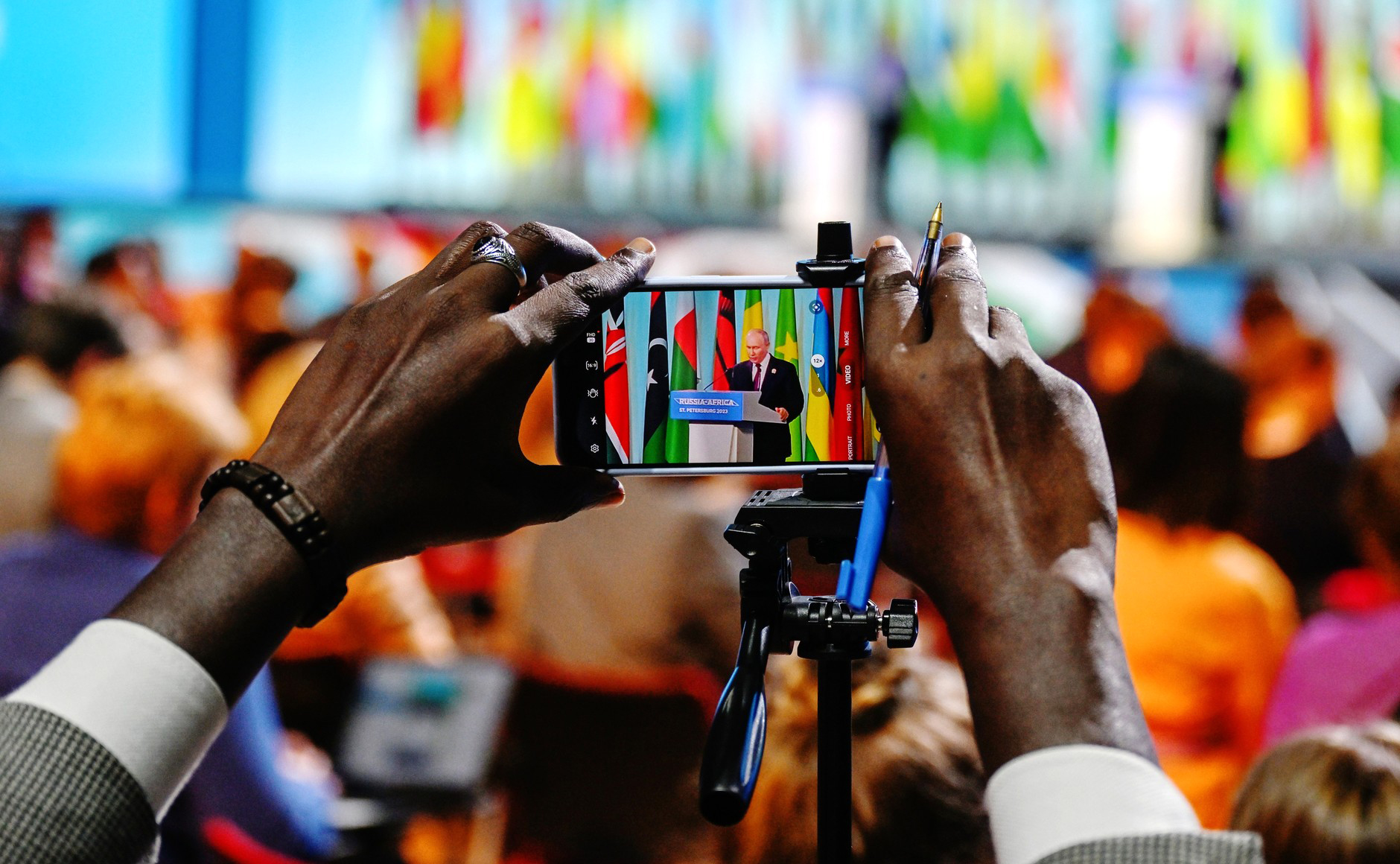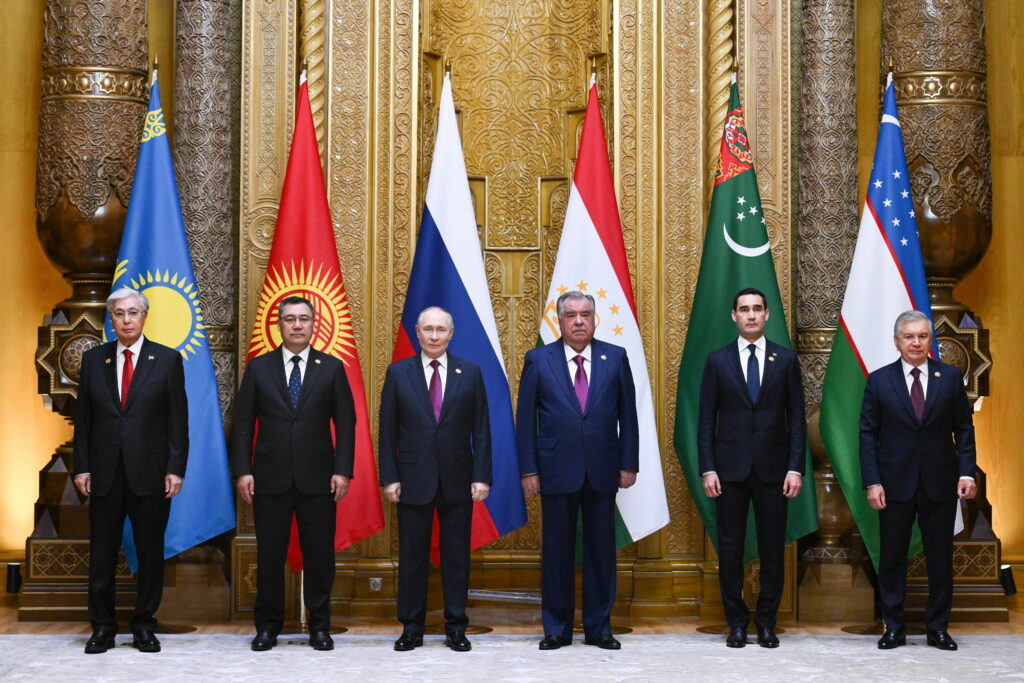The second Russia-Africa summit in Saint Petersburg this July was an eye-catching moment for Russia watchers. The question of what Russia is up to in Africa has been of interest well before the first Russia-Africa summit in 2019, largely because of the expanding involvement of the infamous Wagner PMC and Rosatom’s ambitious nuclear power projects (or rather ambitious declarations). Yet Russian officials see this latest spate of interstate diplomacy as a new high-water mark of interaction on the African continent. Indeed, President Vladimir Putin, the Russian MFA and many Russian senior officials have presented this second summit as a major foreign policy development that confirms Russia’s growing role in the Global South, even marking it a victory of Russian foreign policy over the West. Their statements are all expectedly full of optimism and the summit itself was reportedly full of declarations signed by Russia and various African nations pledging closer links on trade, energy and security. But if we go beyond these proclamations of the coming multipolarity and Russia’s «comeback» in Africa, there isn’t much concrete cause for optimism.
Reputation and TV image
Russia’s resurgent interest in Africa is based on its collapsed relations with the West amid the war in Ukraine; that collapse didn’t start in 2022 but has been gradually deteriorating since 2014. With the limited success of Russia’s pivot to Asia, Africa was touted as an easier success story: there was a former Soviet legacy on the continent to build off — in terms of trade, military and what ideological support for decolonization; significant interest among African nations to see Russia as a contemporary challenger to Western leadership and its «neocolonialism in Africa» and an urgent desire in Moscow to show how Russia is not isolated and has alternatives to both the West and the East. The starting kit was relatively cheap for Russia — a limited number of promises for economic support and trade and plenty of African public gratitude in return.
It takes no effort for Russian foreign policy voices to proclaim Russian cooperation with African nations as partnership of the 21st century: that is, based on mutual respect and voluntary — not demanding anything in return for its good will (unlike westerners «who demand democracy»). In this partner offering, Russia doesn’t directly compete with the West or China but offers a third option — all of which strengthen multipolarity and «justice» for the world.
African leaders can return from summits like those in St Petersberg with Russian promises and some actual deals while President Putin can pose with a group of international leaders who «respect and support Russia». Yet this picture might not exactly lead to excitement and approval back home in Russia. Instead, it could imply there is no one else in the world left ready to come to Moscow and applaud President Putin. Putin’s gracious forgiveness of $ 20bln of African debt — just as his own county’s budget deficit reaches new records — would hardly make most Russians too happy. With current exchange rate this sum would be enough to finance the entire Russia’s third biggest city, Novosibirsk for 22 years or cover 7% of Russia’s annual budget.
On a modest note of achievement, any disapproval by the West — in this case of African leaders coming to Moscow amid Russia’s war in Ukraine — is automatically interpreted by some in Russia is a «victory».
Grounds for concrete cooperation
Echoing officialdom, Russian experts gladly proclaim how the second summit confirms a genuine interest of African nations in Russian presence on the continent. Among the success and progress, they note 1.5 times increase in the number of African students in Russia since 2019 (now 35k) and a 10-fold increase of Russians’ travelling to Sub-Saharan Africa over the same time period.
However, the rest seems problematic.
Russia’s trade with Africa has actually decreased from $ 14bln to $ 10.3bln in 2020−2022; while most of this decrease is attributed by Russian experts to Covid, the EU’s trade with African continent has increased $ 239.4bln to $ 412.2bln at the same time. Out of 5 key trade partners of African continent— the EU, China, the US, Turkey and Russia — it is only Russian trade with the continent that dropped. Naturally a significant share of the 2022 drop should be attributed to Russia’s war in Ukraine, and it is not likely there would be an easy way to pick up the pace since due to the war it has become much harder for Russia to transport goods back and forth with Africa. Plus, there is an issue of what currency to use. The latest reports suggest an increased use of the yuan and the UAE dirham but most of the trade is still nominated in currencies that Russia is aiming to depress. President Putin is of course happy to announce that an increase in trade will eventually lead to trade in rubles and local currencies; but considering that it has failed even with the Indian rupee, there is a major question regarding these plans.
In a sign of such difficulties, Russia’s plans to double trade with the African continent, which were announced in 2019 and planned for 2022−2023, were postponed until 2030. But even with this doubled tally, Russia’s trade would have been 16 time smaller than the EU’s: 9 times smaller than of China, 3 times smaller than the US and slightly greater than half of Turkey’s trade with the continent.
A significant core of Russian experts understand the limitation of Russia’s economic capacity and openly reject any attempt to join the economic competition for the continent. Moreover, some even declare that China has picked up where the Soviet Union has left off, leaving Russia miles behind.
So, what is left?
Even so, Russian foreign policy experts tirelessly repeat that Africa must become a priority for Russian policy simply because it is the only continent where no other great power has full domination. Most often we see them citing an inevitable increase of African potential due to economic growth and population increase that will make it into a future pole in a multipolar world. RIAC’s Ivan Timofeev insists that Russia just needs to become a partner of last resort for African countries — to seek where its targeted assistance is needed and offer security, investment, technologies or as he claims even sovereignty. Fyodor Lukyanov agrees that Russia must seek out those in Africa that have nowhere else to go, playing on their anti-western rhetoric and policies and provide a shoulder even if Russia’s support would by default be limited.
A more sober approach suggests that what Russia should aim for is a «friendly neutrality» that African nations could provide Moscow in return for «humanitarian exports» of which grain is the most important one.
It should be noted however that there is no such thing as a unifified Russian Africa policy; both engagement and expectations differ in each region. Resources are also finite: Russia is incapable of acting on volumes available to EU or China; statistically speaking, Russia should aim to compete with Turkey over its practical influence there. Still, Africa is set to become a sort of priority for Russian policy — at least in terms of PR summits and piecemeal deals that irritate the West — for at least as long as Russia’s relationship with the West sinks below sea level and most of Russia’s resources are concentrated on its war in Ukraine.










